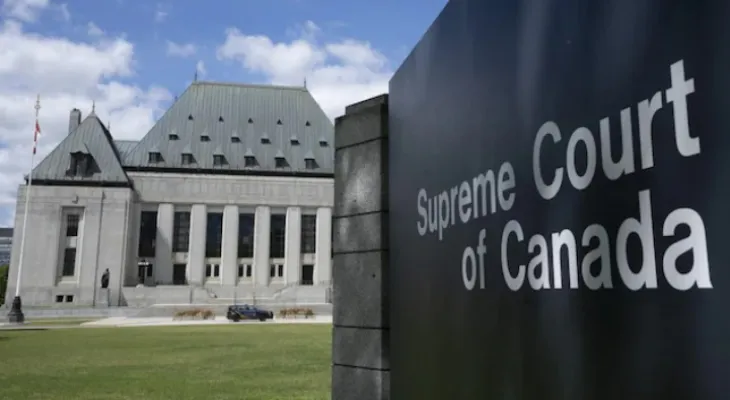Search here
Newspaper
Search here

Arab Canada News
News

Published: November 17, 2023
Canada’s Supreme Court will not hear the case of four Canadian men detained in northeast Syria who argue that Canadian authorities have a legal duty to help them return to Canada.
The detained Canadians are among many foreign nationals languishing in dilapidated detention centers run by Kurdish forces who took over the area torn by civil war from the Islamic State organization (“ISIS”).
The four men had asked the Supreme Court to consider their appeal of a Federal Court of Appeal decision issued in May, which concluded that the federal government is not legally obligated to bring them back to Canada.
As usual, the Supreme Court of Canada gave no reason for refusing to hear the case.
One of the four Canadians is Jack Letts, who became a devout Muslim as a teenager and went on vacation to Jordan, then studied in Kuwait before ending up in Syria.
The identities of the other three Canadians have not been publicly disclosed.
In their request to the Supreme Court, the lawyers of the four Canadians said that the federal government “picks and chooses” which Canadians it wants to help out of a hellish situation.
The lawyers added that the foreign captors of the four Canadians would release them if Canada requested that and facilitated their return home, as it previously did with some Canadian women and children who were detained by Kurdish forces and were able to return to Canada.
The lawyers also pointed out in their brief submitted to the Supreme Court that the four Canadians have been arbitrarily detained for several years without being charged or tried.
Last January, the four men won a round in their long battle. Federal Court Judge Henry Brown ordered the federal government to request, as soon as reasonably possible, their return from Kurdish prisons in Syria and to provide them with passports or emergency travel documents.
Judge Brown also ruled that the four men have the right to have a Canadian government representative travel to Syria to assist in their release once the captors agree to hand them over.
But the Canadian government argued that Judge Brown mistakenly conflated the right of citizens recognized under the Canadian Charter of Rights and Freedoms to enter Canada with the right of return, effectively creating a new right for citizens that the government must bring them back home.
The Federal Court of Appeal agreed with this argument, saying that Judge Brown’s interpretation “requires the Government of Canada to take positive, and even risky, steps, including acting abroad” to facilitate the men’s right to return to Canada.
However, the Federal Court of Appeal judges concluded that even if the government is not constitutionally or legally obliged to return these men to their country, the court’s decision “should not prevent the Government of Canada from making efforts, at its sole discretion, to achieve such a result.”
Sally Line, Jack Letts’ mother, had said in August that her son was “barely holding on” in his detention in Syria, adding that “he and other Canadian citizens have had to endure what no human should ever have to endure.”
The request submitted to the Supreme Court of Canada on behalf of the four men stated that the court has an opportunity to decide whether Canada has a duty, under the Charter of Rights and Freedoms, to assist Canadians abroad when it is clear they are facing blatant violations of fundamental human rights.
For its part, the federal government confirmed in the file it submitted to the Supreme Court of Canada that no one disputes that the four Canadians face deplorable conditions, but added that the reason they cannot return to Canada is that they are imprisoned abroad by foreign captors.
Comments